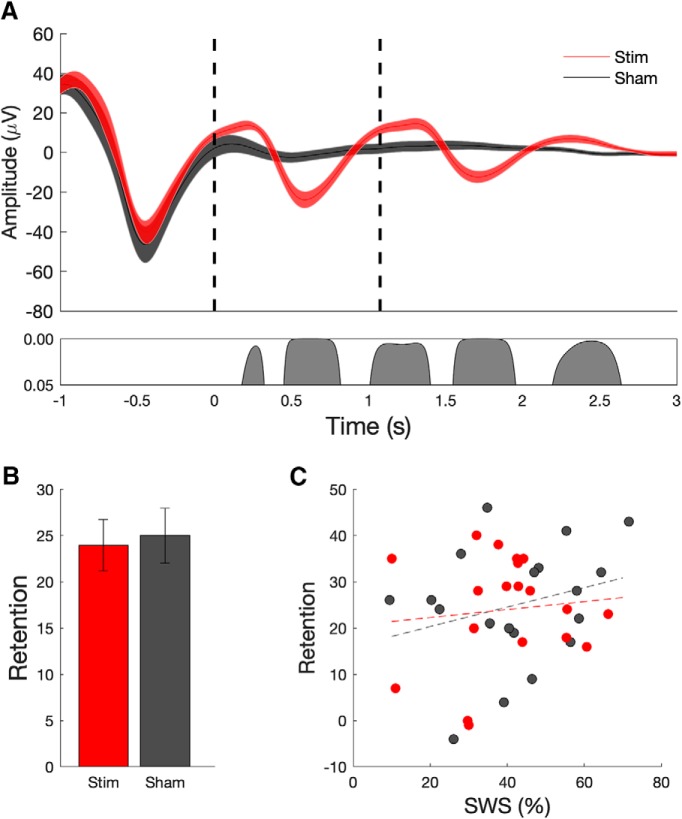Figure 4.
Closed-loop stimulation during overnight sleep enhances slow-wave and spindle oscillations, but does not enhance verbal memory performance. A, Mean ± SEM EEG signal (at electrode Cz) averaged (across 19 subjects) time locked to the first auditory stimulus (t = 0 s) for the stimulation (red) and sham (black) conditions. The bottom panel indicates significant differences between conditions. Evoked responses from 19 subjects show that stimulation delivered during slow-wave UP states (red curves; dashed lines indicate onset of acoustic pulse) enhances ongoing slow-wave oscillations relative to sham stimulation (black). B, Memory performance, as assessed by the word pair associates task does not exhibit a significant benefit from acoustic stimulation relative to sham (mean, SEM). C, Correlation (and trend line) between the amount of SWS during the stimulation period and retention on the behavioral task. Correlations were not significant in either condition.

